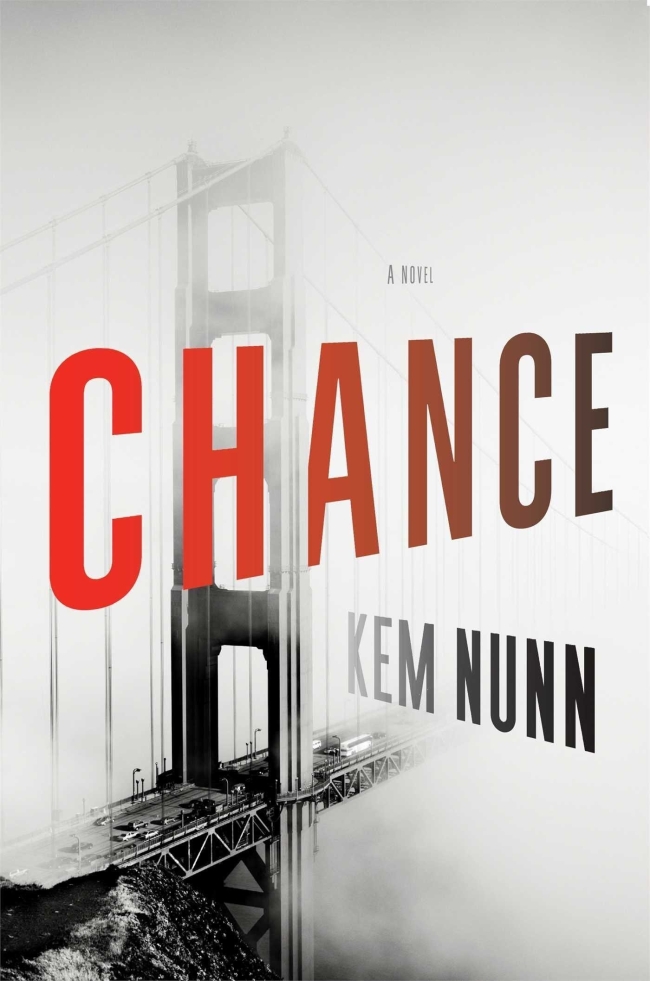
Is it too much to compare Kem Nunn to Raymond Chandler? Both have used the loose frame of genre to write enduringly and resonantly about the dark side of the California dream. For Nunn, this has meant an exploration of boundaries, both actual and metaphorical; his last novel, “Tijuana Straits” (which won a 2005 Los Angeles Times Book Prize), traces the shifting landscape of the physical borderland.
At the same time, there is also a willingness to take risks, to play against expectation, which marks both Nunn’s fiction and his TV work on “John from Cincinnati” and now “Sons of Anarchy.” His writing has been characterized as “surf noir,” but really, that’s just a convenient placeholder, going back 30 years to “Tapping the Source,” in which a teenage boy’s search for his sister leads him to the unexpected fringes of a Southern California beach community.
Like Chandler, Nunn’s great subject is what lies beneath the surface, the desolation that infuses us at every turn. As Eldon Chance, the central character of his sixth novel, “Chance,” reflects, “What difference would any of it make when all was said and done? When entropy and darkness had had their way?”
“Chance” is very much a book about entropy and darkness. It also takes its share of risks, beginning with the name of Nunn’s eponymous protagonist, a forensic neuropsychiatrist in San Francisco who “made the better part of his living explaining often complicated neurological conditions to juries and or attorneys.” Such a formulation can seem contrived, especially in a novel like this one, which is, at heart, about uncertainty.
That, of course, is another risk, to build a narrative in which neither character nor reader ever fully knows what’s real and what’s perceived. For Chance, this is true of his personal as well as his professional life: a collapsing marriage, a rebellious teenage daughter, trouble with the IRS.
And yet the thrill of “Chance,” the vividness of it, is that Nunn somehow makes this work ― not cohere, exactly, because the novel is fundamentally an exploration of incoherence but reflect the awful incomprehensibility of the world. For Chance, 49, astray “within a dark woods where the straight way was lost” (to steal a phrase from Dante), this is both a practical and a philosophical consideration; he is self-aware enough to see himself slipping off the straight and narrow, and yet powerless to stop himself.
“He could see all of this for what it was,” Nunn writes of his main character, “the half-mad quixotic gesture better dreamt than executed because well ... because that was what life was like in the end. It was an image in a glass darkly. It was all just half lived.” Just how half-mad becomes apparent when he grows infatuated with a patient, the elusive Jaclyn Blackstone, wife of a corrupt and brutal Oakland cop who quickly becomes the novel’s counterbalance, the yang to Chance’s yin.
This, of course, is another kind of border: a blurred one, in which darkness bleeds in and out of light. It’s a tension that Chance, like all of us, must wrestle with, between propriety and something far more fierce and wild.
Early in the book, Chance meets a former Army ranger known only as D, a mountain of a man who restores furniture for an antique dealer on Market Street. D is damaged also: diabetic, sleep-averse, defined by a tangle of violence below the skin.
“People talk about self-defense,” he says. “I’m defending, I’m losing. I want the other guy defending while I attack.” He proves the point one night in the Tenderloin by taking on four muggers as Chance watches, beating them so badly it is uncertain they’ll survive.
For D, this is a way of showing Chance how to deal with Jaclyn’s husband, who may or may not be making threats. “Doesn’t make any difference how many people I’m fighting,” D continues, “I want them all defending because that means I’m dictating the action. I’m the feeder. As long as I’m the feeder, I win. ... Right now, this cop is the feeder. You’re the receiver. You need to turn that around.”
The problem is that even Chance can’t tell how much he is being fed and how much he is feeding himself. This becomes increasingly treacherous the more his daughter gets into trouble, first with pot and then by disappearing with a boyfriend who be might mixed up in Jaclyn’s world.
By David L. Ulin
(Los Angeles Times)
(MCT Information Services)










![[Hello India] Hyundai Motor vows to boost 'clean mobility' in India](http://res.heraldm.com/phpwas/restmb_idxmake.php?idx=644&simg=/content/image/2024/04/25/20240425050672_0.jpg&u=)








